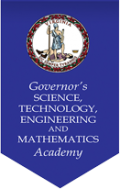JUNIOR YEAR COURSES (Engineering Fundamentals)
XLR8 INTRODUCTION TO ENGINEERING DESIGN (PLTW) (MEC 155, MEC 150))
In this course, students use 3D solid modeling design software to help them design solutions to solve proposed problems. Students will learn how to document their work and communicate solutions to peers and members of the professional community. The major focus of the IED course is to expose students to the design process, research and analysis, teamwork, communication methods, global and human impacts, engineering standards, and technical documentation. (4 DE credits)
XLR8 PRINCIPLES OF ENGINEERING (PLTW) (MEC 140)
This survey course of engineering exposes students to some of the major concepts they’ll encounter in a post-secondary engineering course of study. Students have an opportunity to investigate engineering and high-tech careers and to develop skills and understanding of course concepts. Students employ engineering and scientific concepts in the solution of engineering design problems. They develop problem-solving skills and apply their knowledge of research and design to create solutions to various challenges. Students also learn how to document their work and communicate their solutions to peers and members of the professional community. (4 DE credits)
XLR8 PRE-CALCULUS I & II (MTH 161/162)
Students in this semester course (MTH 161) learn about college algebra, matrices, and algebraic, exponential, and logarithmic functions. (3 DE credits)
Students in this semester course (MTH 162) learn about trigonometry, analytic geometry, sequences, and series. (3 DE Credits)
XLR8 APPLIED CALCULUS I (MTH 261)
Students in this semester course learn about limits, continuity, differentiation of algebraic and transcendental functions with applications, and an introduction to integration. Prerequisite: Pre-Calculus I (3 DE credits)
XLR8 COLLEGE CHEMISTRY I & II (CHM 111/112)
This one-year sequence of courses emphasizes experimental and theoretical aspects of inorganic, organic, and biological chemistry. Discuss general chemistry concepts as they apply to societal and environmental issues. The course examines principles and concepts of chemistry with an emphasis on applications useful to engineers. Includes stoichiometry; atomic structure; chemical equations and reactions; chemical bonding and molecular structure, gases, liquids, and solids; materials science; chemical thermodynamics; kinetics: equilibrium; electrochemistry; and polymers. (8 DE Credits)
XLR8 College Biology I (BIO 101)
Focuses on biological processes with a chemical foundation, including macromolecules, cellular structure, metabolism, and genetics in an evolutionary context. Explores the core concepts of evolution; structure and function; information flow, storage and exchange; pathways and transformations of energy and matter; and systems biology. Emphasizes the process of science, interdisciplinary approach, and relevance of biology to society. (4 DE credits)
COLLEGE SUCCESS SKILLS (SDV 100)
Assists students in the transition to college. Provides overviews of college policies, procedures, and curricular offerings. Encourages contact with other students and staff. Assists students in college success through information regarding effective study habits, career and academic planning, and other college resources available. Includes instruction in networked information resources and the use of telecommunication software (1 DE Credit)
SENIOR YEAR COURSES (Mechatronics Fundamentals)
XLR8 BLUEPRINT READING (DFT 161)
Teaches the application of basic principles, visualization, orthographic projection, detail of drafting shop processes and terminology, assembly drawings, and exploded views. Considers dimensioning, changes and corrections, classes of fits, tolerances, allowances, sections, and conventions in blueprint reading. (2 DE Credits)
XLR8 INDUSTRIAL SAFETY-OSHA 10 (SAF 130)
Presents an introduction to occupational health and safety and its application in the workplace. Emphasizes safety standards and the Occupational Safety and Health Act (OSHA), its rules and regulations (OSHA 10). (1 DE Credit)
XLR8 DIGITAL ELECTRONICS (PLTW) (ETR 113)
This course is the study of electronic circuits that are used to process and control digital signals. Digital electronics is the foundation of all modern electronic devices such as cellular phones, MP3 players, laptop computers, digital cameras, and high-definition televisions. The major focus of the DE course is to expose students to the process of combinational and sequential logic design, teamwork, communication methods, engineering standards, and technical documentation. (3 DE credits)
XLR8 APPLIED CALCULUS I (MTH 261)
Students in this semester course learn about limits, continuity, differentiation of algebraic and transcendental functions with applications, and an introduction to integration. Prerequisite: Pre-Calculus I (3 DE credits)
XLR8 STATISTICS (MTH 245)
Students in this semester course learn an overview of statistics, including descriptive statistics, elementary probability, probability distributions, estimation, hypothesis testing, correlation, and linear regression. Prerequisite: Pre-Calculus I (3 DE credits)
XLR8 CALCULUS I & II (MTH 263/264)
Presents analytic geometry and the calculus of algebraic and transcendental functions including the study of limits, derivatives, differentials, and introduction to integration and their applications. study of integral calculus of one variable including indefinite integral, definite integral, and methods of integration with applications to algebraic and transcendental functions. Designed for mathematical, physical, and engineering science programs. Prerequisite: Pre-Calculus I and II (8 DE Credits)
XLR8 COLLEGE PHYSICS 1 & 2 (PHY 121/122)
This course covers the fundamental principles of physics. Includes mechanics, thermodynamics, wave phenomena, electricity, and magnetism, and selected topics from modern physics with an emphasis on technical applications, including precision measurement, statics, dynamics, energy and momentum, heat, sound, optics, and DC and AC electricity. (8 DE Credits)
XLR8 COORDINATED INTERNSHIP (MEC 190)
Work-based learning opportunity for students in the spring semester of senior year. (1 DE Credit)
